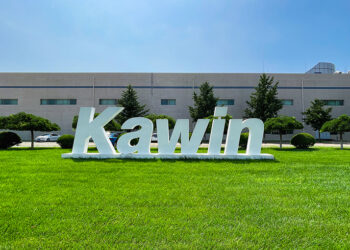Select Language:

Shaza Fatima Khawaja, Pakistan’s Federal Minister for Information Technology and Telecommunication, announced on Saturday that Google plans to produce roughly 600,000 Chromebooks in Pakistan annually. This marks a major milestone aimed at strengthening the country’s tech industry and establishing Pakistan as a regional IT hub.
During her media briefing, she confirmed that Google has finalized its registration in Pakistan and is preparing to open an official office soon.
She also highlighted recent progress under Prime Minister’s guidance, noting that Pakistan’s collaborations with top global tech and social media firms have entered a new, productive phase.
Khwaaja explained that Google’s local Chromebook production, in partnership with the Ministry of Defense Production and NRTC, exemplifies how public-private partnerships can propel IT manufacturing forward.
She stated that the project aims to offer affordable, high-quality devices, especially targeting students and the educational sector.
“These advanced initiatives demonstrate increasing confidence from international companies in Pakistan’s economy, while also fostering technology transfer, best practices, and new employment opportunities,” she remarked.
While visiting the Haripur site, the minister expressed satisfaction at seeing about 600 young men and women employed there. “As production scales up, the assembly line will expand, creating more jobs and allowing for Chromebook exports,” she said, emphasizing the substantial role women engineers are playing in advancing Pakistan’s tech sector.
She also mentioned that the Ministry of IT has signed an agreement with Google to provide tech training to youth, with a special focus on girls and artificial intelligence (AI).
“Plans are underway to establish AI labs across Pakistan in collaboration with Google, especially aimed at integrating AI studies into secondary school curricula,” she added.
This endeavor is backed by support from the Ministry of Education and provincial authorities in Punjab, Sindh, Balochistan, and Khyber Pakhtunkhwa.
Khwaaja also pointed out recent efforts with Meta, noting that its regional team visited Pakistan last month to train government and private sector media teams on tackling misinformation and disinformation.
Saudi Group Launches AI Hub in Pakistan
As a significant step towards broadening AI accessibility, Meta’s AI platform now supports Urdu, empowering students and citizens nationwide to learn, experiment, and develop AI applications in their native language. Pakistan is among the few countries worldwide to offer this feature.
On the social media front, TikTok has introduced a dedicated STEM feed in Pakistan, offering free educational content in science, technology, engineering, and mathematics. This initiative helps students and underserved communities access valuable learning resources through a popular platform.
“Partnerships with global tech giants reflect the immense potential of our youth, who are not only diligent but also innovative and entrepreneurial,” Khwaaja emphasized. Initiatives like AI labs, Urdu-language platforms, and educational features on social media aim to prepare Pakistan’s next generation for a tech-centric future.
She further highlighted growing collaboration between Pakistan and Saudi Arabia in the fields of technology and AI, viewing it as a major driver for economic growth and job creation.
According to her, Saudi’s GO Telecommunications Group has launched an AI Hub in Pakistan, linking local tech firms with Saudi partners.
“This platform enables Pakistani freelancers, small businesses, and micro-enterprises to remotely offer tech services to Saudi companies without establishing a physical presence there,” she explained. Moreover, Saudi companies are setting up offshore offices in Pakistan, which helps generate jobs and increase exports.





